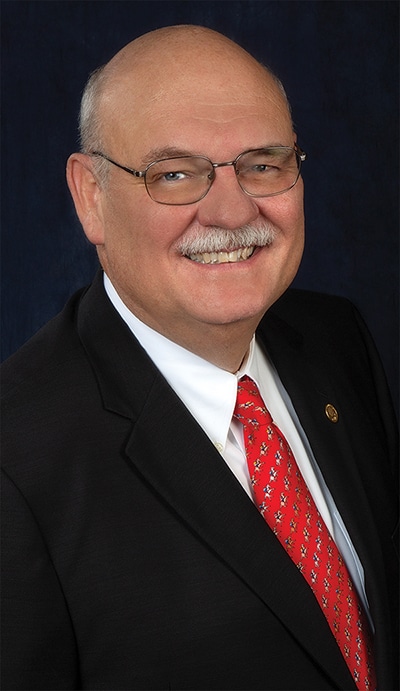Patrick Godbey, MD
January 2020—Recently I attended and spoke at a meeting of the Georgia Association of Pathology. That might not sound like a big deal, but it was. This was an important occasion for me and my colleagues in Georgia because our state society had been dormant for the past decade. Thanks to the efforts of five CAP fellows and the CAP itself, we are back in Georgia.

Dr. Godbey
State pathology associations are extremely important because many of the laws and regulations that dictate how pathologists are allowed to practice medicine are state laws and regulations. Such things as how pathologists obtain a license to practice, when pathologists can be sued for malpractice, and how pathologists bill for Medicaid are, in large part, decided in your state capital. Much of how you are allowed to interact with private third-party payers is determined there too. Pathologists have a louder voice in states with robust pathology societies.
While being active in the CAP is critical for all pathologists, it is also important that we are active in our state pathology societies. These societies play a central role in monitoring and responding to proposed legislation and regulations. The CAP’s ability to help at the state level is greatly dependent on the condition of the state pathology society. The stronger the state society, the more effective the efforts of the two organizations will be. The CAP has ongoing strategic initiatives to improve the viability of these societies, and many of us in the CAP leadership work closely with them.
The CAP’s State Pathology Working Group falls under the Council on Membership and Professional Development and is chaired by Edward P. Fody, MD. Thanks to the work of this group of pathologists, tools such as a virtual meeting platform, membership toolkits, virtual state pathology society leadership roundtables, and online advocacy education programs will be available this year. The CAP will also provide a great deal of support for your state association meetings, including providing speakers, promoting the meetings on the CAP website, sending emails to members, and providing CME credits for those who attend.
Several members of the CAP staff are active in promoting state pathology societies. Megan Wick oversees programs to support state societies. If your state does not have an active pathology association, I encourage you to reach out to Megan at mwick@cap.org. I can tell you from firsthand experience that she will be a great help. CAP staff member Barry Ziman started our program to support state pathology societies in their advocacy efforts. In his time at the CAP, Barry and his team have helped put in place more than 100 state laws and administrative rulings that benefit pathologists.
 CAP TODAY Pathology/Laboratory Medicine/Laboratory Management
CAP TODAY Pathology/Laboratory Medicine/Laboratory Management
